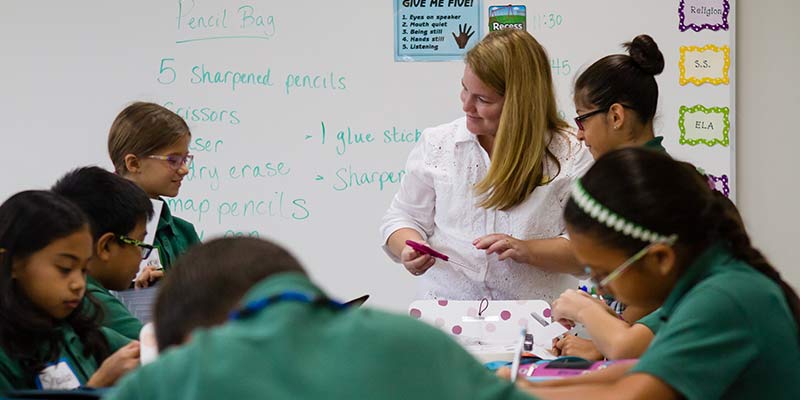On December 1, the Education Commission of the Congress of Deputies approved the proposal to create a sub-commission in charge of preparing, within six months, a diagnostic report on a great State pact for education. The document would serve as a basis for the government to promote a new education law that would bring stability to education policy. Meanwhile, the timetable for the implementation of all the aspects of the current Organic Law for the Improvement of the Quality of Education which have not yet come into force has been suspended.
For the preparation of the report, as many hearings as necessary will be held. The subcommission will call various organizations, institutions, persons of recognized prestige, social agents, educational platforms, trade unions, etcetera. And the Sectorial Conference, the State School Council and the Autonomous School Councils may issue specific reports.
The stability of the Pact, if achieved, will depend on the support of this parliamentary majority. But, as rightly pointed out José Miguel GarcíaAccording to the director of the Secretariat of the Episcopal Commission for Teaching and Catechesis, this educational pact must be, above all, the result of a dialogue with the real educational subjects, not just a minimum agreement between political groups. The more teachers and parents are involved, the greater the possibility of reaching a lasting pact. And it will be difficult to subscribe a stable and definitive Pact if it does not guarantee several rights and freedoms. We are referring, of course, to the freedom of education and the right to teach Religion.
Furthermore, any Pact will be limited by the Constitution and its article 27, which recognizes the right to education, freedom of teaching and the fundamental right of parents to educate their children according to their convictions. And it will have to strengthen the complementarity of the networks of public and private-subsidized schools, without considering the subsidized school as a subsidiary of the public one, definitively guaranteeing its financing and stability.
The voice of the Church
On October 18, a representation of the Spanish bishops held a meeting with the Minister of Education, then in office, Iñigo Méndez de Vigo, to give their opinion on the advisability of the Education Pact and to request, in turn, to participate in it actively and with a single voice. This was confirmed by the Secretary General of the Episcopal ConferenceJosé María Gil Tamayo, who recalled the the Church's full support for the "education is a matter of state", and is not at the mercy of the "partisan alternations". In Spain, 11 education laws have been passed in 35 years, and this "There is no one who can resist it. stop making the school a political and ideological controversy board".said Gil Tamayo. And he also considered it necessary that the voice of the Church "to be taken into account when we start talking about an educational pact"."Given its remarkable presence in the field of education, with 2,600 centers specifically Catholic, that have 125,000 workers and nearly 1.5 million students; and considering that 3.5 million students freely choose the Religion and are 25,000 teachers of this subject.
In the meeting with the minister, which was attended by the president and secretary of the Education Commission - Bishop César Franco of Segovia and José Miguel García - as well as Gil Tamayo himself, it was insisted that the pact does not entail the elimination of Religion from the curriculum. By wanting this subject to be in the new educational framework, the Church does not intend to defend any privilege, but neither does it want to be marginalized. It is a constitutional right and a fundamental right of parents. And in the case of Catholic education, it is, in addition, a right protected by the Agreements between the State and the Holy See. The possibility of to be able to freely choose one's religion is an indicative of that "full insertion of the Church in constitutional Spain." to which King Felipe alluded during his recent visit to the Episcopal Conference.
For Gil Tamayo, the problem with the Religion subject lies in the fact that "there are people who still live with very old-fashioned approaches.who thinks that the public space must be aseptic of all religious convictions". and that the Catholic has to "hang on a hanger their religious convictions". when entering public places.
With the creation of the subcommission, an important and positive step has been taken, but there is still a long way to go. No one is unaware of the existence of ideological and political pitfalls, which is why it is time to show a clear vision, generosity and concern for the general interest, in the conviction that it is urgent to improve the educational system and give it the continuity and stability necessary for the good of the students.











